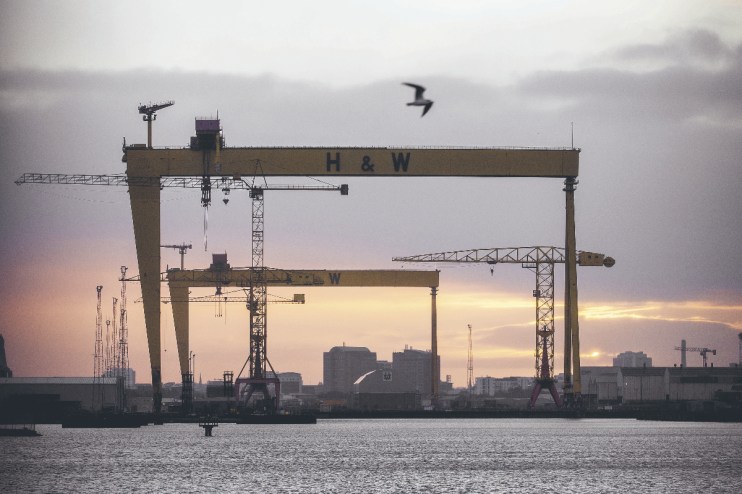Titanic shipbuilder Harland & Wolff suspends trading: How did we get here?

Harland and Wolff suspended trading in its shares on the London Stock Exchange after accounting issues delayed the publication of its annual report.
The Belfast-based firm, which owns the shipyard that built the Titanic, said it had been in “ongoing discussions” with its auditors regarding the method of accounting for revenues in some of its contracts.
It said the assessment had forced it to delay publication of its 2023 annual report until 8 July 2024.
“Trading in the company’s ordinary shares on AIM will therefore be suspended with effect from 7:30am today pending publication.” The suspension may be lifted when the report is eventually published.
However, alongside the announcement, the company also published its unaudited financial results for the financial year ended 31 December 2023.
The figures showed a jump in revenue from £27.8m last year to £86.9m for the year to the end of December. The company also posted an operating loss of £24.7m, down from £58.5m.
The announcement comes amid mounting losses and weeks of uncertainty surrounding a £200m government loan guarantee, which has put the group’s future in doubt.
How did Harland & Wolff get here?
Harland’s future, and by extension, the future of a £1.6bn contract to build Royal Navy ships in Britain, rests on that £200m government loan guarantee.
The problem? Even before the election was announced, rumours started to emerge that the Treasury intended to block the taxpayer-backed guarantee.
Harland and Wolff denied the claims as “misleading and inaccurate.” However, the timing of the election threw another cloud of uncertainty over the company’s future.
“Our application has not been rejected and continues to be a work in progress,” chief executive John Wood said earlier this year.
The government is reportedly concerned about the finance mechanism proposed, and MPs have questioned whether it is right to spend taxpayers’ money on propping up the struggling business.
In a note, Cavendish analyst Peter Renton described the money as “critical” to securing the company’s long-term future.
Harland & Wolff, which in its glory days was responsible for building the Titanic, has not been right for years. Auditors were already warning in 2023 that the business faced “material uncertainty” unless it could source fresh work.
The company’s financial issues stretch back decades and it currently has a market value of just £20m, alongside a significant debt pile. It was saved from administration in 2019 via a £6m deal with the energy firm Infrastrata.
Drinking to success
Harland & Wolff’s chief executive, John Wood, has taken a no-holds-barred approach to media claims that his company may be on the verge of disaster.
The former BAE Systems executive has not shied away from Facebook skirmishes with any who’ve dared question whether something might not be quite right at the shipyard.
In a Linkedin post earlier in the year, he accused a Telegraph journalist of having a “few too many glasses of wine” over an article.
But it looks like Wood might have been the drunk one after all.
The real question is why the government thought Harland and Wolff was capable of delivering a £1.6bn contract to build Royal Navy ships, given the state of its bottom line. Moreover, it has not built a complex warship for over two decades.
Who knows, but it clearly won over the most recent shipbuilding tsar, Grant Shapps.
He became cheerleader in chief in January in a separate spat over whether the firm should be chosen to build boats for the Scilly Isles as opposed to a French rival.
The stakes are high. Not only is the 160-year-old shipyard absolutely central to the maritime industry but if it fails, those Royal Navy ships will likely be built in the Spanish port of Cadiz over Belfast.
No warship in British history has ever been made by a foreign shipyard.
Should Harland and Wolff slip into administration, it would mean the demise of one of Europe’s largest heavy engineering facilities and a critical part of Britain’s maritime sector.